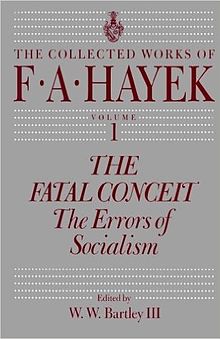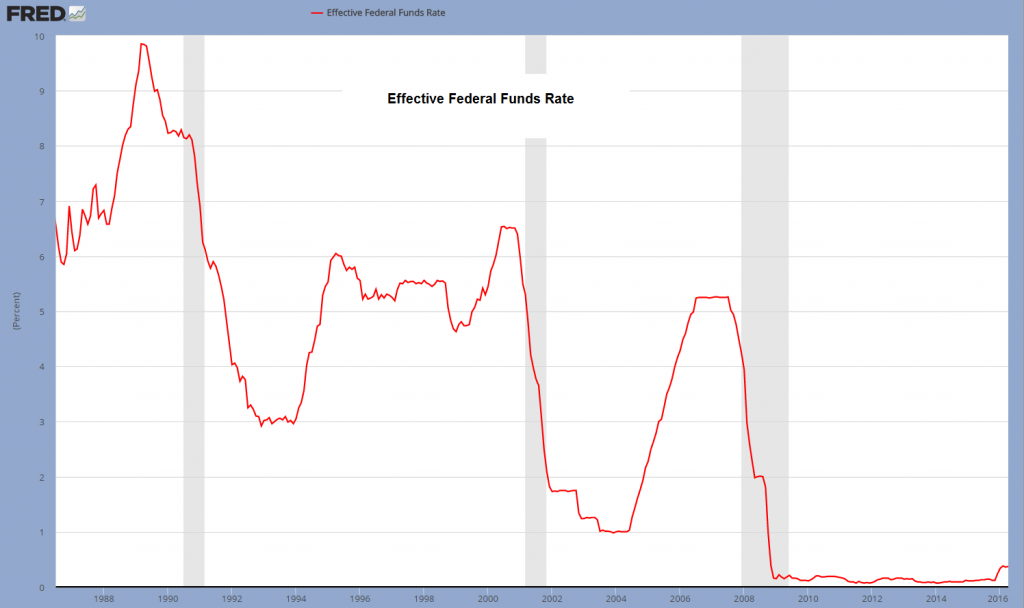Don’t Plan on Living in St. Petersburg… GENEVA, Switzerland – When we left you last week, we were describing why neither democracy nor planning works on a large scale. Austrian School economist Friedrich Hayek described the problem with great thoroughness in his book The Fatal Conceit. The Fatal Conceit: central economic planning is literally impossible – there can be no centrally planned rational economy. Individual planning is distinct from central planning, in that the many individual plans pursued by self-interested individuals mesh and create a spontaneous order. This order is far superior to anything that a central planning agency can ever hope to achieve – in fact, as Mises has shown, central planning is even doomed to failure if the planners hypothetically had perfect knowledge of all facets of the economy at a given time. However, this hypothetical situation can can never be realized anyway, as knowledge is widely distributed and as Hayek argues, is often tacit and therefore not directly communicable. It only expresses itself in human action. Planning is a necessary feature of life. We have to plan our day… our year… our business, our vacations, our budgets – we plan for everything in our lives. And generally speaking, the better we are at planning and at following through on our plans, the better things go.
Topics:
Bill Bonner considers the following as important: Debt and the Fallacies of Paper Money, Effective Federal Funds Rate, fatal conceit, Featured, Gestapo, literally impossible, newsletter, On Economy, On Politics, Stasi, The Fatal Conceit
This could be interesting, too:
Nachrichten Ticker - www.finanzen.ch writes Die Performance der Kryptowährungen in KW 9: Das hat sich bei Bitcoin, Ether & Co. getan
Nachrichten Ticker - www.finanzen.ch writes Wer verbirgt sich hinter der Ethereum-Technologie?
Martin Hartmann writes Eine Analyse nach den Lehren von Milton Friedman
Marc Chandler writes March 2025 Monthly
Don’t Plan on Living in St. Petersburg…
GENEVA, Switzerland – When we left you last week, we were describing why neither democracy nor planning works on a large scale. Austrian School economist Friedrich Hayek described the problem with great thoroughness in his book The Fatal Conceit.
 The Fatal Conceit: central economic planning is literally impossible – there can be no centrally planned rational economy. Individual planning is distinct from central planning, in that the many individual plans pursued by self-interested individuals mesh and create a spontaneous order. This order is far superior to anything that a central planning agency can ever hope to achieve – in fact, as Mises has shown, central planning is even doomed to failure if the planners hypothetically had perfect knowledge of all facets of the economy at a given time. However, this hypothetical situation can can never be realized anyway, as knowledge is widely distributed and as Hayek argues, is often tacit and therefore not directly communicable. It only expresses itself in human action.
The Fatal Conceit: central economic planning is literally impossible – there can be no centrally planned rational economy. Individual planning is distinct from central planning, in that the many individual plans pursued by self-interested individuals mesh and create a spontaneous order. This order is far superior to anything that a central planning agency can ever hope to achieve – in fact, as Mises has shown, central planning is even doomed to failure if the planners hypothetically had perfect knowledge of all facets of the economy at a given time. However, this hypothetical situation can can never be realized anyway, as knowledge is widely distributed and as Hayek argues, is often tacit and therefore not directly communicable. It only expresses itself in human action.
Planning is a necessary feature of life. We have to plan our day… our year… our business, our vacations, our budgets – we plan for everything in our lives. And generally speaking, the better we are at planning and at following through on our plans, the better things go.
Naturally, we assume that this sort of planning will be helpful at all levels – from our personal schedules to an agenda for the entire nation. But there’s a problem: Planning requires detailed knowledge of our goals and resources.
If you’re going to build a factory, for example, you need a lot of information. You need to know where, when, how, and why, covering a vast range of issues. How much will it cost? How long will it take? What will it make? How will the goods be delivered? Where will employees come from? How much will they earn? Etc., etc.
You do that planning as best you can – sometimes right, sometimes wrong – and always knowing that you’ll have to live with the results. But then, along come the feds. And they’ve got their own plans.
“You can’t build a factory there,” they say.
“We’re raising the minimum wage,” they add.
“You’ll have to get a license… a permit… clearance from the FDA, EPA, FBI, TSA, NSA, DOJ, SEC, NLRB…
“And, oh yes, your product must be sold at the price we set…”
Uh-oh.
The problem is not one with planning, per se, but with a conflict of plans. You have your plans – based on specific information about what you want to do and what you have to work with – and the feds have theirs.
You want to spend your money; the feds want to take it away to fund their own projects. You want to live in St. Petersburg. They want to put you in a gulag in Siberia.
Shot to Hell
You save money for your retirement. You plan ahead. You calculate how much you need, and for 20 years you hold back enough…sticking to your plan until your 65th birthday. Then here comes the Fed, cutting interest rates so drastically that your entire plan is shot to hell.
By edict – with no vote from you or anybody you ever voted for – roughly $8 trillion in interest payments has been confiscated from savers and handed to debtors, making them richer at your expense.
Effective Federal Funds RateSorry old boy – all the returns you expected to get from your savings one day are belong to us too… |
When you put your plans forward, they are based on a free give-and-take with the rest of the private sector – raising the money you need, buying the resources necessary, and hiring workers.
Nobody is forced to do anything. It is all voluntary; everyone involved believes he comes out ahead. But along come the feds. They tell you their plans take precedence. They have the Gestapo, the NKVD, the Stasi, and the ATF behind them.
You can negotiate and persuade with customers and suppliers. The feds simply levy fines…put you in jail…or worse. It doesn’t matter what you want or what you think: You go along – or else. Families, businesses, and small towns, too – all must bend to the will of the central government.
And then what?
Inevitably, the central planners in Washington, Moscow, London, and Paris make a mess of things. Growth slows. Money is lost. Wars are launched. People are killed.
Who pays the costs? The central planners?
Not on your life. The costs of their errors and shenanigans are always imposed – by force – on the people whose own plans were disrupted: investors, taxpayers, consumers, and communities.
The “fatal conceit,” says Hayek, is that they believe they can make a better world by interfering with private plans and imposing their ideas about how the world should work.
Wishful Thinking
And democracy? It is like a pair of twins – one scam and the other wishful thinking – and often hard to tell them apart. We want to think that the common people – in their wisdom – will always make the right choice, after they’ve exhausted the wrong ones.
You fool all of them some of the time, as Abe Lincoln said (and proved), but you can’t fool them all the time. But what we see in history is that most people are ready for almost any kind of mischief, day or night. There is nothing so stupid, murderous, and counterproductive that they won’t get up to it sooner or later.
“But at least they get what they deserve,” you might say. Surely public policy will reflect the will of the people, won’t it?
Well, even it did, it would still be repulsive and ineffective. Even with the support of 51% of the population, central planning would still disrupt the plans of the other 49% – leading to mass larceny, less output, and involuntary servitude.
But there is almost no chance that central planning on a national scale will be understood and supported by a majority of the people anyway. How many people understand the Fed’s zero-interest-rate policy? How many support the wholesale rip-off of America’s savers for the benefit of the rich?
Studies have proven that no matter whom you elect, the central planners work for the Deep State, not for the voters. They continue pursuing their self-serving agenda… no matter what you want.
And since their agenda involves taking wealth and power from the many and giving it to themselves, there is almost no chance – were it fully understood – that the majority of voters would support it. So, if you think the nuisances and indignities imposed by the feds will stop – just because you elect Hillary or Donald – you’re probably mistaken.
But wait – we have one more question to answer. Thoughts on that next time. Then we promise to keep quiet about voting. Perhaps we could all agree to disagree? We will respect your position, dear reader, such as it is, and you will accord the same silent contempt to ours. Okay?
Chart by St. Louis Federal Reserve Research
Chart and image captions by PT
The above article originally appeared as “In Praise of Central Planning” at the Diary of a Rogue Economist, written for Bonner & Partners.





